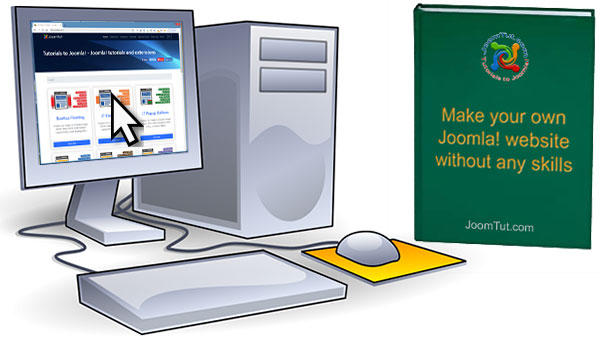Localhost and Remote host
A localhost is a Web server and associated database that is set up directly on your computer or that may be on a local network either within your home or business environment. You have direct easy access to the machine upon which the software is situated
A remote host is one that you access via the internet it may be owned by you or you may rent it from a dedicated hosting company. In this case there are different flavours such as managed, dedicated, virtual, or shared hosting. But in simple terms the computer that houses the software is remote from you. The scope and detailed explanation of each of these flavours is outside of the boundaries of this manual but whichever option you select you must ensure that they meet your expected requirements together with the minimum specifications detailed above.
In respect of the localhost option there are a number of ready made packages that put all the necessary software together (excluding Joomla!) in one easily installable package that generally allow you to have your own personal Web server and database without really knowing too much about how they work.
How about Localhost installations
The following are the more readily available, and popular, varieties of these packages and the operating systems for which they are designed.
- XAMPP - Read more about: How to create web server on localhost with XAMPP?
- WAMP - Read more about: How to create web server on localhost with WampServer?
Most of the packages will also usually contain some form of database administration program as well, for example, PHPMyAdmin or MySQLAdmin, to enable effective management of the database, if not, you will find it advantageous to install such a program if you intend doing any sort of database editing work.
The remainder of this Manual assumes for the most part, that you have a fully functioning Web server.
We would strongly recommend testing Joomla! and its functionality on a localhost installation in the first instance to get a feel for the software and what it can offer you.
On remote, hosted or dedicated servers the configuration and availability of these applications will depend on the host provider or the operating system that is installed upon the server. It would be a wise move to determine their current versions as well as the host's policy regarding updating the software before signing any contracts. The variation that can occur between providers and OS can be significant and is outside the scope of this brief instruction. If you encounter a problem with your host provider and the use of Joomla! check Joomla! FAQ to see if other users have experienced the particular issue and what their solution was.
Joomla! can be used with alternative web servers such as Microsoft© Internet Information Service (IIS) as well as alternative database models (alternative database work is very much in its infancy though), but these are not paths we intend exploring in this manual as Joomla! Is primarily developed for use on the AMP combinations already stated.
There are discussions and work under way to expand the platforms upon which Joomla! will operate without significant issue, but this is in its early stages of development. For particular issues, or to see if a combination of programs meet the necessary criteria, check the forums to see if anyone else has succeeded with a particular task or indeed whether you can contribute to one of the ongoing projects.



